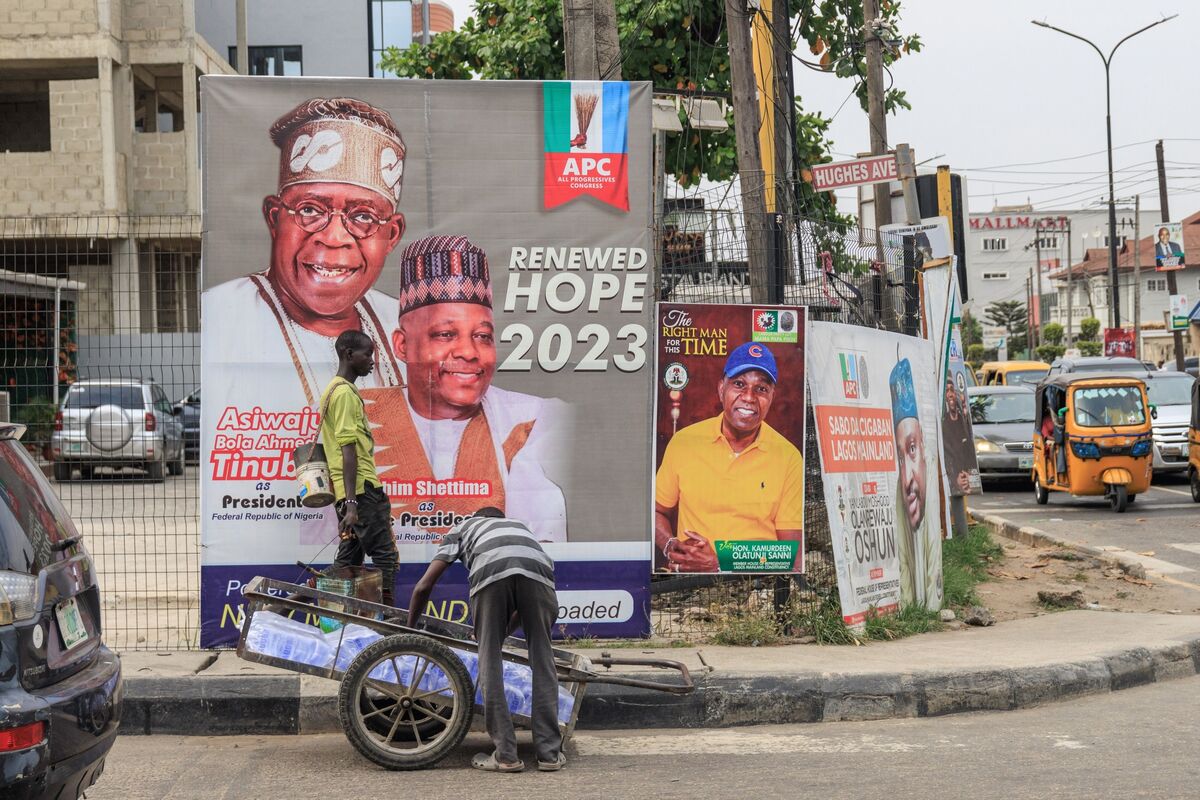Nigeria's North-South Divide: Tinubu's Tax Plan Stalled
Nigeria's newly elected President Bola Ahmed Tinubu inherited a nation grappling with deep-seated economic and social challenges, none more prominent than the persistent North-South divide. His ambitious tax reform plan, intended to bolster government revenue and address pressing infrastructural needs, has faced significant headwinds, further highlighting the complexities of bridging this historical chasm. This article delves into the intricacies of the stalled tax plan, examining the underlying causes and exploring potential pathways forward.
The Roots of the North-South Divide
Understanding the complexities of Tinubu's stalled tax plan necessitates acknowledging the historical and socio-economic factors that fuel the North-South divide. This division is not merely a geographical distinction; it's a manifestation of differing economic structures, cultural practices, and political power dynamics.
-
Economic Disparity: The South, traditionally more industrialized and commercially active, contributes a disproportionately larger share to the national GDP. This imbalance creates resentment and fuels calls for greater regional autonomy in resource allocation. The North, largely agrarian, often feels economically marginalized despite its significant population.
-
Resource Control: Control over oil revenues, predominantly located in the South, has been a consistent point of contention. The perception of unequal distribution of these resources exacerbates the divide and fuels distrust in the federal government's ability to fairly allocate resources.
-
Cultural and Religious Differences: The significant cultural and religious differences between the predominantly Muslim North and the largely Christian South contribute to political polarization and make consensus-building incredibly challenging. These differences often manifest in conflicting priorities and perspectives regarding governance and resource allocation.
-
Political Representation: Imbalances in political representation and power-sharing arrangements have historically disadvantaged certain regions, fostering feelings of marginalization and fueling regional grievances.
Tinubu's Tax Plan: Ambitions and Obstacles
President Tinubu's tax reform plan, aimed at diversifying revenue streams beyond oil and boosting government revenue, has encountered significant resistance, primarily stemming from the pre-existing North-South divide. The plan involves broadening the tax base, increasing tax rates on certain goods and services, and improving tax collection efficiency.
Key Challenges:
-
Regional Disparities in Tax Capacity: The uneven economic development between the North and South means that implementing a uniform tax policy faces immediate challenges. Higher tax rates might disproportionately affect the already struggling economy of the North, leading to further resentment.
-
Lack of Trust and Transparency: Past experiences with perceived inequitable distribution of resources have fostered deep-seated distrust in government pronouncements. Without demonstrable transparency and accountability in how tax revenues are utilized, acceptance of the plan is unlikely.
-
Political Opposition: The plan has faced opposition from various political factions, further compounding the challenges. Regional political interests often prioritize regional agendas over national unity, hindering the necessary consensus-building for such a crucial initiative.
-
Informal Economy: Nigeria's large informal economy poses a significant challenge to effective tax collection. This informal sector is more prevalent in the North, making the implementation of the tax plan even more difficult.
Pathways Forward: Bridging the Divide
Overcoming the obstacles to Tinubu's tax plan requires a multi-faceted approach focusing on addressing the underlying causes of the North-South divide.
-
Enhanced Transparency and Accountability: Implementing robust mechanisms to ensure transparency in tax collection and revenue allocation is crucial to building trust and fostering a sense of fairness. Regular public reporting of revenue generation and utilization will be vital.
-
Targeted Regional Development Initiatives: Investing in infrastructure and development projects in the North, addressing the economic imbalance, is essential for bridging the gap and creating a more equitable playing field.
-
Strengthening Inter-regional Dialogue: Facilitating open and inclusive dialogue between representatives from the North and South is crucial for building consensus and fostering a sense of shared national identity.
-
Addressing the Informal Economy: Implementing policies to gradually integrate the informal economy into the formal sector, providing incentives for tax compliance, is essential for expanding the tax base and ensuring equitable contribution.
Conclusion:
The stalled tax plan serves as a stark reminder of the deep-seated challenges facing Nigeria. Addressing the North-South divide is not merely an economic imperative but a fundamental requirement for achieving national unity, stability, and sustainable development. President Tinubu's administration must prioritize inclusive dialogue, transparency, and equitable regional development to pave the way for a more prosperous and united Nigeria. The success of future economic policies hinges on overcoming this enduring chasm.
